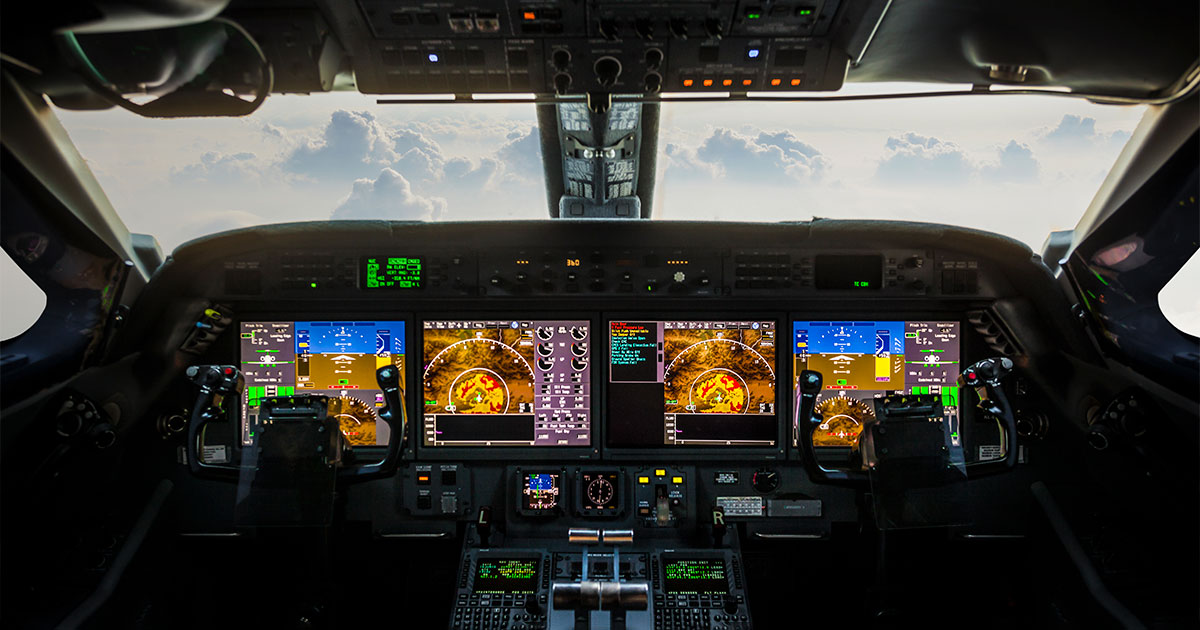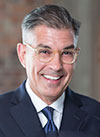
One of the more remarkable shifts in the practice of law is the trend toward mediation rather than litigation. Mediation is by and large cheaper, faster, and less risky than going to trial, yet when it first hit the scene in the late 1980s and early 1990s, many trial attorneys were suspicious of this new kid on the block. These days, however, many cases are mediated rather than litigated. It’s a prime example of how something that was once considered exceptional and expensive is now standard operating procedure incase resolution.
Today, many lawyers operate at the edge of a legal frontier, where practices must evolve to meet new needs and expectations. Yet lawyers still tend to treat novel methods of resolving disputes as suspect, often disparaging new approaches with labels such as “alternative” or “unconventional.” This thinking is short-sighted. Dismissing anything that falls outside the old norms, practices, and personnel of the courtroom – as mediation once did – eliminates invaluable opportunities to serve clients well.
This is especially the situation when it comes to jury consulting (also known as trial consulting), which too often has been dismissed as an “alternative” practice or as a luxury most attorneys can’t afford. In fact, jury consulting has been around for several decades, and I believe that jury consultants are such essential allies in creating winning case strategies that working with them should be woven into the fabric of trial lawyers’ everyday practice. Not only are their services more affordable than most people realize but also they are an investment that litigators cannot afford not to make.
Reasons to Add a Jury Consultant to Your Team
Here are some reasons lawyers need an experienced jury consultant as a member of their team.
Preparing for trial is a long and arduous process. Preparing for trial requires close attention to every detail and data point, every bit of evidence, every fact and all its surrounding context. Great lawyers investigate relentlessly, striving to master more details than their opponents can. Great lawyers focus on small portions of the case at a time – because they are obliged to do so. They go out of their way to meet clients’ expectations and spend inordinate time meticulously building a winning case strategy.
The irony is that the very practices that make lawyers effective advocates for their clients can also make them lose perspective.
When your nose is to the grindstone and you’re immersed in a profusion of detail, it’s almost impossible to comprehend the big picture. Like pilots in adverse weather conditions who lose their perspective and cannot tell whether a plane is going up or down, trial lawyers can lose their perspective and sense of direction over the long course of litigation. After spending so much time preparing a case, it is all too easy for trial lawyers to assume they know the case better than anyone – and that they know how it will play out in court. The loss of perspective can cause trial lawyers to lose cases they should have won and undermine client interests they should have protected.
In short, lawyers lose perspective – and often lose cases – when they rely exclusively on their own experience and subjective judgment and do not use tools available to them. An advocate’s knowledge of a case might be stunningly impressive, but knowing more than anyone else in the room is of little value if the lawyer cannot present information in a way that informs and persuades the jury. We forget that even seasoned pilots rely on sophisticated navigational equipment to help them stay on course.
In pre-COVID-19 days when I spoke to live audiences, I would ask trial lawyers, “How many of you canvass jurors after your trial is over and ask them about the trial?” Most would raise their hands. Then I would ask, “Why do you do that?” The answers always converged on some version of “to improve my skills,” “to find out why I won or lost,” or “to learn what the jury liked and did not like about me and my opponent, the judge, the witnesses, or the strategy we used.”
To which I would emphatically respond, “Why do you wait until after the trial to gain such crucial information?”
Long before trial, every lawyer should stop and ask: “Will this play in Peoria?” In other words, will a carefully constructed case presentation persuade a jury of laypeople?
There is only one way to find out:
Ask them.
Gain a wider perspective. One of the best ways to gain a wider perspective and to get authentic feedback on case strategy from people who are demographically representative of a jury is to enlist the help of jury consultants. Their job is to give lawyers pointed commentary on the defenses the lawyers have constructed, targeted strategy guidance to help navigate the cognitive and affective biases jurors bring to a case, and honest feedback on what is persuasive and what is not. A great jury consultant functions like a sophisticated navigational system, conducting focus groups and mock trials before the trial date to help determine what a case means, what the case is worth, and how to leverage its strengths and minimize its weaknesses. A jury consultant helps dispel the fog and give the lawyer a clear, data-driven vision of the case. A jury consultant eliminates the guesswork of trying to predict what jurors will think and how they will react.
The range of navigational instruments a jury consultant offers as a co-pilot is vast.
Navigational Instruments
Tools a jury consultant can provide and operate include the following.
Focus Group. A focus group is a demographically representative group of individuals to whom a short (two- to four-hour) presentation is made. The presentation is designed to explore and evaluate different strategies to equip the trial team to effectively make the most persuasive trial presentation.
Mock Trial. A mock trial is a six- to eight-hour (or multiday) event in which trial counsel presents both sides of a case and mock jurors deliberate and render their verdict on the evidence. Scaled questions, interrogatories, and a moderator-facilitated dialogue deliver crucial data about the case, facilitating counsel’s ability to determine exposure and case value and gain insights into trial strategy.
Jury Selection, Research, and Profiling. During voir dire, the best trial lawyers 1) develop a rapport with the prospective jurors, 2) make a record supporting strikes for cause against the jurors who are unfairly biased, and 3) elicitinformation to decide how peremptory strikes should be exercised.
Assisting a trial lawyer to impanel a fair jury tailored to the client’s case is one of the most important strategic steps in a case and should be done with the right consulting team.
Trial Strategy and Theme Development. A jury consultant will help develop and strategically deploy the facts of a case in a way that resonates with the jury. From voir dire to closing arguments, jury consultants can help lawyers connect with jurors and tell a captivating and persuasive story the jurors want to hear, tailored to the unique features of a case.
Graphics and Animation. It is axiomatic that “a picture is worth a thousand words.” Lawyers tend to default to words – but why speak 1,000 words when a static or moving image might capture an idea more powerfully? Well-designed visuals solve complex communication problems. A jury consultant can explain which facts and ideas about a case are better conveyed visually than expressed verbally.
Shadow Juries. Shadow juries are comprised to reflect the demographic characteristics of the people who will serve on the jury. Shadow jurors attend a trial, observe the proceedings, and provide commentary from their perspective, allowing counsel to adapt short-term trial strategy and delivery based on real-time feedback.
Customized Solutions
Jury consultants offer a variety of other services, including development of opening statements and closing arguments, change-of-venue research, development of supplemental written jury questions, conducting juror interviews after trial, witness evaluation and preparation, and client-expectation and relationship management.
The best jury consulting teams pair the wisdom and intuition of a trial lawyer’s on-the-ground experience with the data of a behavioral social scientist to provide accurate insight about how people think and make decisions, resulting in customized, data-driven recommendations for trial strategy. The best teams are adept at broad, lateral thinking and give litigators the perspective they need, and they offer strategic recommendations designed to help map and navigate the uncertain terrain of a case.
Conclusion
To get the most benefit from the partnership, lawyers should begin working with a jury consultant as early as possible during trial preparation and engage the navigational instruments they offer throughout the lifecycle of a case. An investment in early learning pays significant dividends.
All cases involve risk. Every case involves uncertainty. No case should devolve into guesswork. A jury consultant helps a trial team discover and develop the full potential of a case, long before the team enters the courtroom.
Meet Our Contributors
What was one of the most satisfying cases you assisted as a jury consultant?
 We consulted with an attorney who represented a Fortune 50 Company. His opening statement spanned 150 years of company history and lasted an hour.
We consulted with an attorney who represented a Fortune 50 Company. His opening statement spanned 150 years of company history and lasted an hour.
We proposed two jury-consulting events. At the first, the attorney delivered his original opening statement, and the mock jurors related what was most memorable. Right away, the attorney realized his message was getting lost in superfluous detail. Based on the jurors’ feedback, we created a concise and persuasive opening statement.
The attorney presented the new statement at the second event. This time, the mock audience was not only captivated, they were convinced. They voted in favor of the Fortune 50 Company, which was exactly how it played out at trial.
Jeffrey L. Goodman, Goodman Keller PC, West Des Moines, Iowa
Become a contributor! Are you working on an interesting case? Have a practice tip to share? There are several ways to contribute to Wisconsin Lawyer. To discuss a topic idea, contact Managing Editor Karlé Lester at klester@wisbar.org. Check out our writing and submission guidelines.
» Cite this article: 95 Wis. Law. 12-14 (November 2022).
